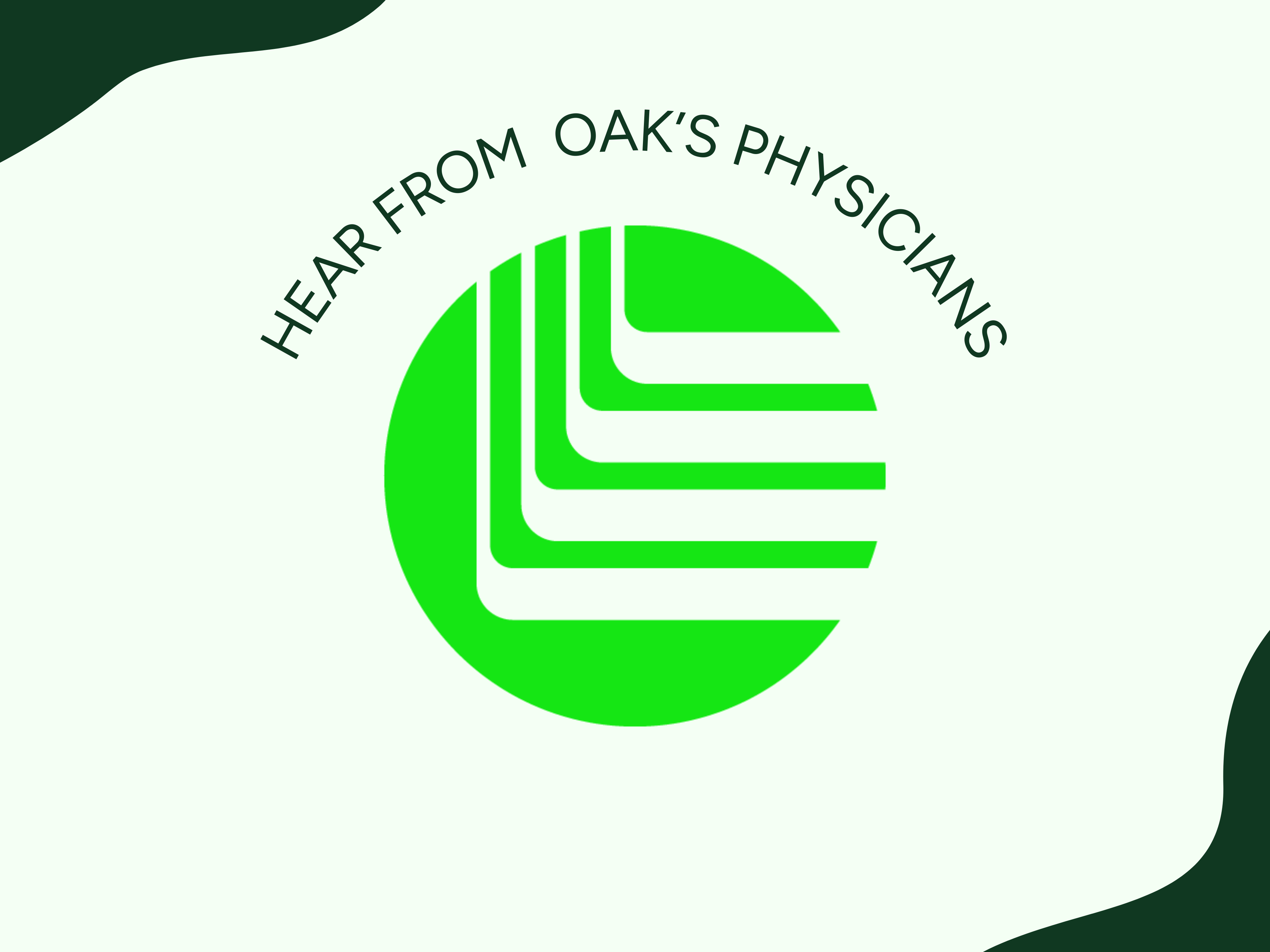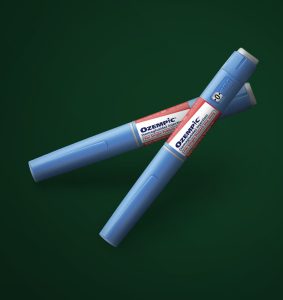Dr. Chris Humphreys, MD FRCPC DRCPSC
Can you tell us about your role as a respirologist and sleep doctor at Oak?
Of course! As a Respirologist and Sleep Specialist at Oak, I focus on how respiratory health and sleep quality tie into our weight loss programs. Basically, I work on integrating treatments for sleep apnea, improving sleep hygiene, and enhancing overall respiratory function into our approach. By doing this, we create more personalized and effective weight loss plans. I collaborate closely with a fantastic team of healthcare professionals, and together, we make sure our strategies are always up-to-date with the latest research.
Impact of Weight on Respiratory and Sleep Health:
What exactly is Obstructive Sleep Apnea (OSA), and how does excess weight play into it?
Great question!
Obstructive sleep apnea (OSA) is a disorder characterized by repetitive collapse of the upper airway during sleep. Approximately 39 million U.S. adults have obstructive sleep apnea (OSA); 936 million adults world wide are estimated to have mild to severe OSA1.
There is a strong connection between weight gain and OSA. In one study, a 10% increase in total weight was associated with a six-fold increase in risk of the development of moderate to severe obstructive sleep apnea.
This condition can result in numerous symptoms including: snoring, pauses in breathing overnight, recurrent awakenings overnight, frequent nocturnal urination, feeling unrefreshed upon awakening, morning headaches and decreased daytime energy and focus.
It has also been associated with various health conditions such as: high blood pressure, heart disease, diabetes, atrial fibrillation, stroke, and depression. Treatment of this condition may lead to improvements in sleep-related symptoms (e.g. snoring, awakenings, nocturia, daytime energy) and may help protect against long term disease sequelae.
So losing weight can actually help with sleep and respiratory issues?
Definitely! Weight loss is one of the most effective ways to reduce the severity of OSA, especially in people who are overweight or obese. When you lose weight, it can relieve some of the pressure on your airway, which can reduce OSA symptoms and improve your overall health. Plus, better sleep can help with weight loss too, so it’s a win-win. Poor sleep can mess with your appetite hormones, making you crave unhealthy foods. By improving sleep quality, we can help people break that cycle and lose weight more effectively.
Weight loss is recommended in overweight (BMI 25–29.9kg/m²) or obese (BMI >30kg/m²) OSA patients. Clinical guidelines support that weight loss is associated with improvements in OSA severity, cardiometabolic comorbidities, and quality of life.
The poor sleep quality and fragmented sleep that OSA causes can make losing weight more difficult. It can disrupt our appetite regulation, causing individuals to crave high calorie and sugary foods, contributing to further weight gain.
Behavioral and Lifestyle Changes:
What lifestyle changes would you suggest for someone looking to manage their weight and improve their sleep?
Incorporating regular exercise is key. Moderate to high-intensity aerobic or resistance training can help you fall asleep faster and stay asleep longer. Plus, exercise is great for weight management, so it’s a two-for-one benefit. Making sure you have a consistent sleep schedule and good sleep habits can also make a big difference.
Regular moderate to high intensity aerobic or resistance training has been suggested as beneficial for sleep onset and consolidation.
Overview of GLP-1s:
Can you talk a bit about the weight loss medications that are out there? How do they relate to sleep and respiratory health?
GLP-1 receptor agonists may help reduce OSA severity by promoting weight loss. These meds work by reducing appetite and slowing down how quickly food leaves your stomach, which helps with weight loss. And as you lose weight, the pressure on your airway decreases, which can make OSA less severe. It’s an exciting area of research, and we’re keeping a close eye on new developments!
Weight loss has been shown to decrease the severity of sleep apnea. Currently, no US FDA-approved weight loss medication has been approved for the treatment of OSA severity and symptoms. However, new studies have demonstrated the benefit of glucagon-like peptide 1 receptor (GLP-1) agonists on reducing sleep apnea severity. These medications stimulate insulin secretion, but also down regulate appetite via central mechanisms and via delay in gastric emptying. The SCALE Sleep Apnea randomized controlled trial demonstrated that Liraglutide (Victoza©) reduced the severity in OSA patients who were unable to use continuous positive airway pressure (CPAP).
Complete a quick form for a free physician consult to learn how an Oak Longevity GLP-1 prescription may fit your needs. Oak’s Care Team is available to you during your journey for free support and guidance.
Wu, C., & Stiles, S. (2024, May 8). Sleep apnea statistics and Facts you should know. NCOA Adviser. https://www.ncoa.org/adviser/sleep/sleep-apnea-statistics/
Stansbury RC, Strollo PJ. Clinical manifestations of sleep apnea. J Thorac Dis. 2015 Sep;7(9):E298-310. doi: 10.3978/j.issn.2072-1439.2015.09.13. PMID: 26543619; PMCID: PMC4598518.
Somers VK, White DP, Amin R, Abraham WT, Costa F, Culebras A, Daniels S, Floras JS, Hunt CE, Olson LJ, Pickering TG, Russell R, Woo M, Young T; American Heart Association Council for High Blood Pressure Research Professional Education Committee, Council on Clinical Cardiology; American Heart Association Stroke Council; American Heart Association Council on Cardiovascular Nursing; American College of Cardiology Foundation. Sleep apnea and cardiovascular disease: an American Heart Association/american College Of Cardiology Foundation Scientific Statement from the American Heart Association Council for High Blood Pressure Research Professional Education Committee, Council on Clinical Cardiology, Stroke Council, and Council On Cardiovascular Nursing. In collaboration with the National Heart, Lung, and Blood Institute National Center on Sleep Disorders Research (National Institutes of Health). Circulation. 2008 Sep 2;118(10):1080-111. doi: 10.1161/CIRCULATIONAHA.107.189375.
Khan SU, Duran CA, Rahman H, Lekkala M, Saleem MA, Kaluski E. A meta-analysis of continuous positive airway pressure therapy in prevention of cardiovascular events in patients with obstructive sleep apnoea. Eur Heart J. 2018 Jun 21;39(24):2291-2297.
Mitra AK, Bhuiyan AR, Jones EA. Association and Risk Factors for Obstructive Sleep Apnea and Cardiovascular Diseases: A Systematic Review. Diseases. 2021 Dec 2;9(4):88.
Peppard PE, Young T, Palta M, Dempsey J, Skatrud J. Longitudinal study of moderate weight change and sleep-disordered breathing. JAMA. 2000 Dec 20;284(23):3015-21.
Hudgel DW, Patel SR, Ahasic AM, Bartlett SJ, Bessesen DH, Coaker MA, Fiander PM, Grunstein RR, Gurubhagavatula I, Kapur VK, Lettieri CJ, Naughton MT, Owens RL, Pepin JL, Tuomilehto H, Wilson KC; American Thoracic Society Assembly on Sleep and Respiratory Neurobiology. The Role of Weight Management in the Treatment of Adult Obstructive Sleep Apnea. An Official American Thoracic Society Clinical Practice Guideline. Am J Respir Crit Care Med. 2018 Sep 15;198(6):e70-e87.
Romero-Corral A, Caples SM, Lopez-Jimenez F, Somers VK. Interactions between obesity and obstructive sleep apnea: implications for treatment. Chest. 2010 Mar;137(3):711-9.
Kredlow MA, Capozzoli MC, Hearon BA, Calkins AW, Otto MW. The effects of physical activity on sleep: a meta-analytic review. J Behav Med. 2015 Jun;38(3):427-49









![Verify Approval for [oaklovesyou].com](https://static.legitscript.com/seals/30929254.png)